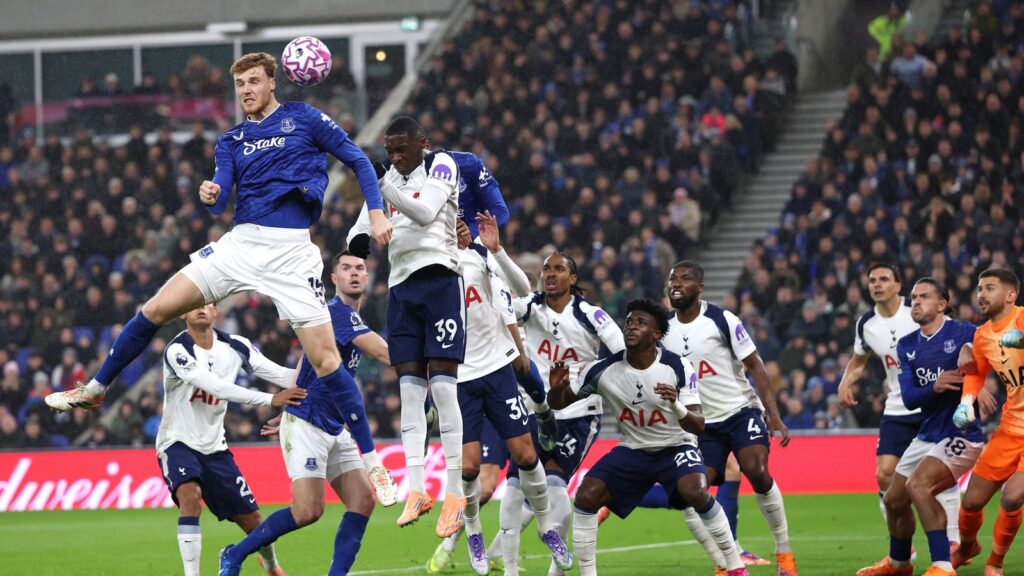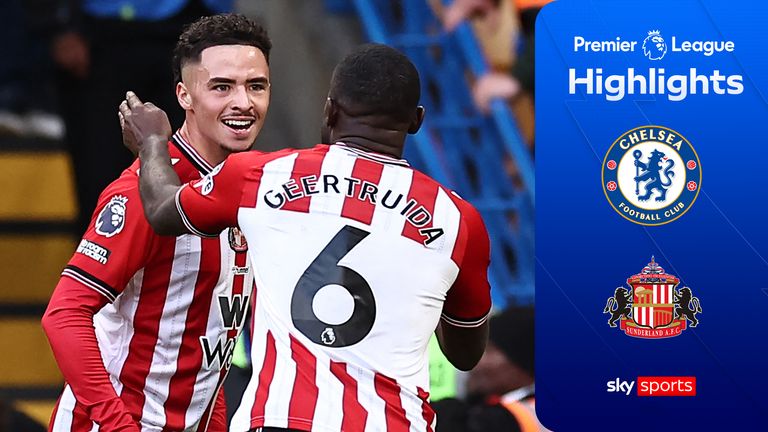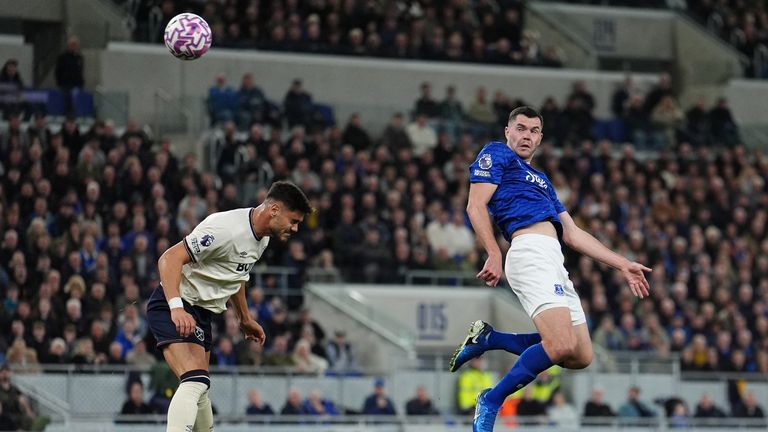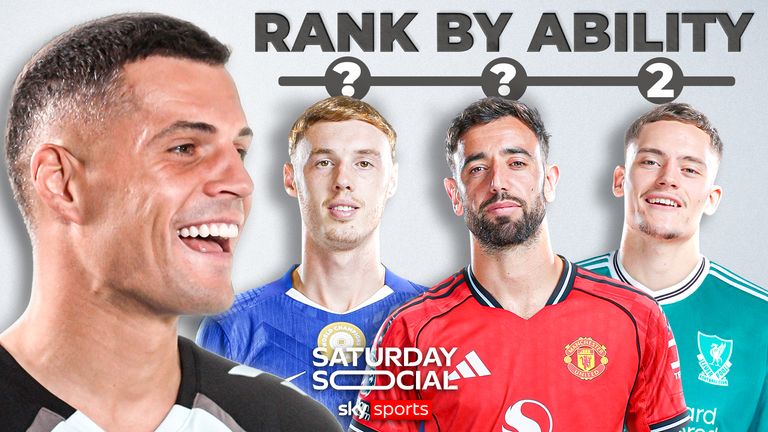There has been a style shift in the Premier League and David Moyes is enjoying it.
“We’ve come through a little bit of a period where, a lot of the football we’ve watched recently, you could say, ‘Oh I’m going to turn this off, I’m not going to watch it’. But I think it’s quite exciting at the moment,” he tells Sky Sports.
After an era of teams playing short from the back and trying to gradually build up the pitch, this year, we’ve seen more long passes and an increase in set-piece threat.
The Premier League has changed. Or has it?
“I don’t think it’s ever gone away, if you ask me. I think it’s always been there,” says Moyes about the importance of capitalising on dead-ball situations.
He is a manager who, throughout his career, has harnessed those set-piece opportunities, as well as the physical elements of the game. But now set-pieces are in the spotlight because of how title favourites Arsenal have mastered those moments, he says.
“Over my years, we always took care of trying to do well at set-pieces, whether that was defending them or whether it was scoring from them. I believe all the managers do that as well. There’s just a big fashion at the moment, with Arsenal being so good.
“Declan Rice’s delivery is fantastic and so is Bukayo Saka’s and they’ve also got two or three brilliant headers as well.
“You need people who can deliver well and you need people who can head it well.
“If you don’t defend corners or free-kicks well enough or you don’t score a few from them, then you’ll make it really difficult for yourself. I don’t see where that’s changed much at all.
“I think the long throws are probably the bit where people have gone, ‘Wow’.”
Indeed, there have been, on average, 3.85 long throws launched into the penalty box per game this season compared to 1.52 last season.
Moyes’ Everton go to Sunderland on Monday Night Football to face a side whose equaliser in their win at Chelsea last weekend came from a Nordi Mukiele long throw.
Not since the days of Tony Pulis and Rory Delap at Stoke City have long throws been so feared. So what’s behind their comeback?
“I think getting more entries into the penalty box you feel is probably going to lead to more goals,” said Moyes. “But we always knew that.
“All clubs will get data and they’ll get information which might suggest that throwing the ball in might give us a better chance of scoring than trying to play short and find a way of crossing it.”
But throwing or kicking the ball into the mixer doesn’t guarantee goals. Playing to your team’s strengths and varying the avenues of attack is what causes problems, says Moyes.
“I don’t think everybody’s shifting to direct play. I think that people are just changing with the time,” he says.
“I mean, it would be common sense if you were getting pressed greatly that you wouldn’t try and beat everybody who was going to press you.
“In the same breath, if you don’t have a big number nine maybe you don’t play up to them. But there are one or two clubs that have got slightly bigger number nines than maybe there were a few years ago.
“Football will always keep evolving. I don’t think it’s one way or the other. Teams will still continue to play out from the back and I think they do. There will be teams who go a bit longer because maybe they have a good target man or a goalkeeper who can kick it far enough to maybe get in behind much quicker.
“But, generally, if you’re a real football supporter, you don’t want it all one way. We want it mixed. We want to see variations. It would be boring if everybody was going to play the same.
“There’s a lot of teams trying to change their style, varying what they do and I don’t think there’s anything up with that at all.
“The best teams have all got good attacking players and people who are creative and can go 1v1 when required. I don’t think we’re just putting all big players in and kicking up the pitch. I don’t think we’re anywhere near that at all. In fact, I think we’re a long, long way from that.
“But there are moments, like with long throws, and coaches are working on moments in the game when the ball’s dead and they’re very good at it.”
So can we expect a rush for long-throw specialists in the January transfer market?
“I think anybody would be really naive if they didn’t think that all those attributes are part of it,” says Moyes. “If you can get somebody who can throw it a long way or if you can get somebody who takes a great corner kick delivery, it’s always been there, it’s not changed.”
The other important trend in the Premier League this season…
There’s another important game-impacting trend in the Premier League Moyes has spotted, which has received less attention. Experienced leaders on the pitch.
Sunderland boss Regis Le Bris described Granit Xhaka as like a coach on the pitch after his team’s win at Chelsea and Moyes believes Everton have similar figures in their squad, too.
“Xhaka, especially, has given them that level of professionalism and understanding of the game and showing them the levels you have to be at to be at the top,” said Moyes. “He’s been at Arsenal, he’s been at Bayer Leverkusen and done brilliantly well. So if he does it for Sunderland and he helps them then it’ll be a big thing.
“One of them here is Jordan Pickford. James Tarkowski. We’ve got a few – Seamus Coleman is a great leader within the club here.
“That’s as much in fashion at the moment as set-pieces are if you ask me. Managers are now looking for leaders, they are wanting people who can take responsibility.
“Joao Palhinha is doing it a little bit for Tottenham in some ways. They’ve got Cristian Romero there, too. Xhaka, Jordan Henderson at Brentford.
“There’s a certain type of player who knows the levels and the standards which constitute being good. The levels you need to be at, the standards the players need to train at, standards expected on game day as well, whether it be from playing or discipline.”
In the always-evolving world of football, and the search for the latest trend, it seems the fundamental factors of the game remain as important as ever.





